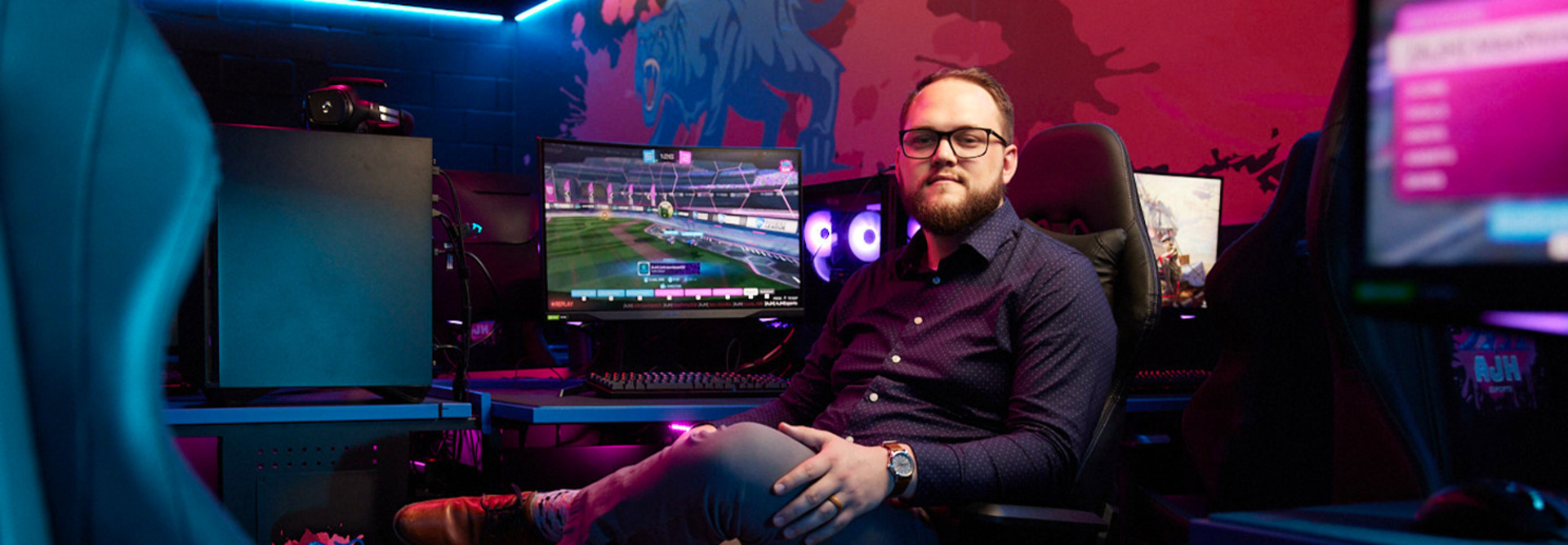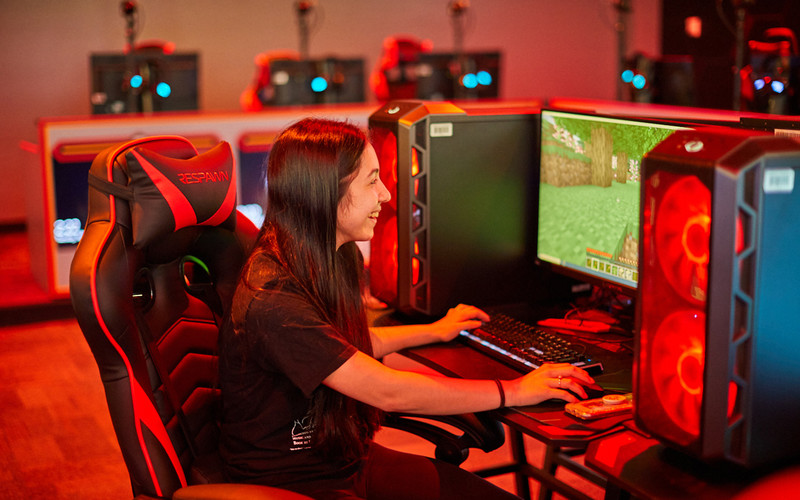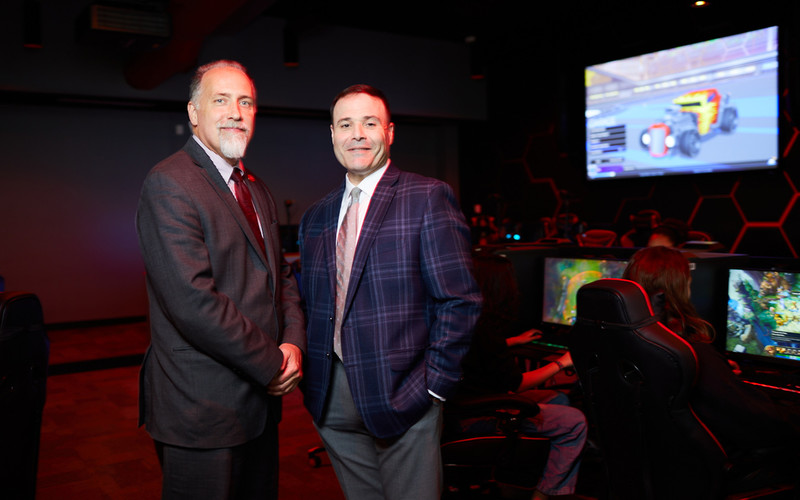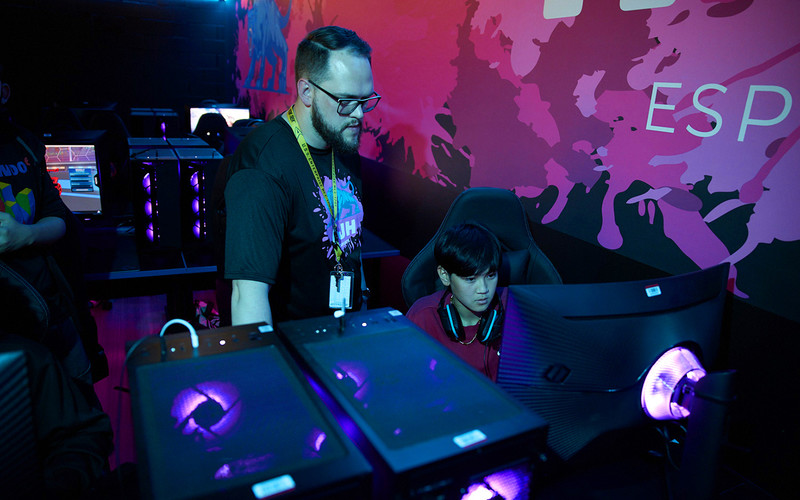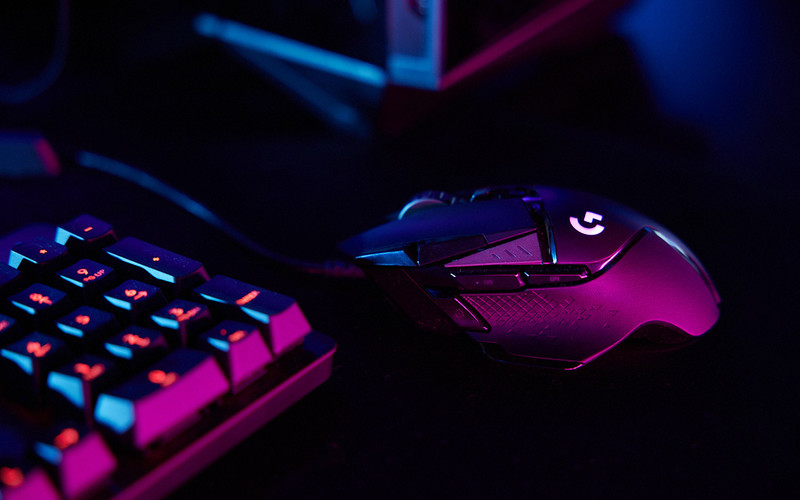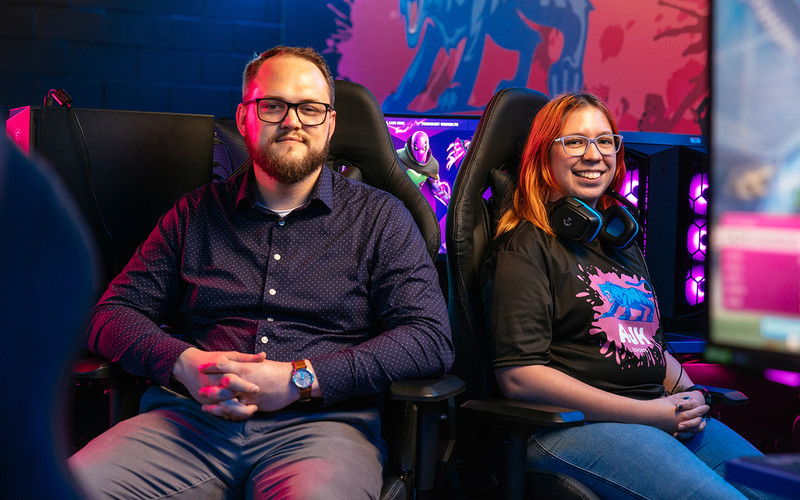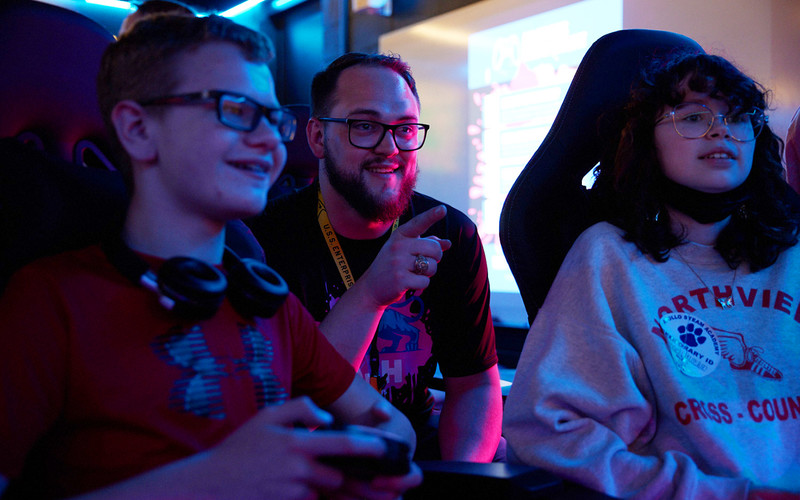According to “COVID Harmed Kids’ Mental Health—And Schools Are Feeling It,” a November 2021 article published by the Pew Charitable Trusts, schools have seen a rise in student behavioral challenges and reduced engagement. And a March report from the U.S. Government Accountability Office found that “1.1 million teachers nationwide had at least one student who never showed up for class in the 2020-21 school year.”
Programs like esports can sometimes serve as an unlikely antidote to student detachment. Educators with esports programs report improved social interactions, community building and engagement among students.
This should come as no surprise, as previous reports show that extracurricular activities are important to student well-being. Responding to a 2020 Phi Delta Kappa International survey of secondary students and teachers that asked how schools can address students’ social-emotional needs post-pandemic, students expressed more interest than teachers in extracurricular activities and socializing with their peers.
Esports Attracts a Diverse Group of Students
To build a successful esports program, schools must build a dedicated esports space with high-end gaming PCs, monitors and peripherals, and comfortable, ergonomic gaming desks and chairs, says Josh Whetherholt, a CDW•G adviser on esports in education.
Apollo Junior High has done just that by turning a classroom into an esports room with 20 gaming stations for students, featuring top-of-the-line MSI computers; curved, 27-inch Samsung LED monitors; Logitech backlit keyboards; mice and headsets; and gaming desks and ergonomic chairs from Spectrum Industries.
Richardson ISD was able to justify the cost to build the room when Apollo created a curriculum-based esports class, says Christopher Yon, executive director of the district’s instructional technology operations.
KEEP READING: These assets can make or break the case for a K–12 esports program.
“A big part of our job as educators is to engage kids, and programs like these leverage existing interests that students may have,” he says.
Apollo’s esports program also provides a welcoming environment for students of all skill levels and has attracted a diverse cross-section of the student body, says Dees, the school’s esports coach.
“We’ve had athletes and nonathletes. We’ve had musically inclined and those who can’t carry a tune. We’ve had students with and without disabilities,” Dees says. “Esports is bringing them all together because it doesn’t matter what culture or learning background you come from.”
About 20 to 30 students attend club meetings, where they compete against each other in tournaments and livestream to Twitch and YouTube.
Dees and Rodriguez Furlong have seen some students blossom because of esports. One student has stopped cutting class since the esports room opened, and another said the esports opportunities in higher education have reinforced his plans to attend college.
They’ve also seen some students try harder in their studies and work with tutors to bring their grades up so they can be part of the esports club.
Others are developing leadership and broadcasting skills. Dees and Rodriguez Furlong have taught several students to run in-house tournaments on their own. They keep track of who wins and loses, set up the matches and manage the livestreams — and are teaching other students to take over.
Esports Club Helps Students Grow Leadership Skills
Last November, Edison Township Public Schools in New Jersey opened a new esports arena at Edison High School, providing students an immersive gaming environment that includes 24 gaming stations for play, six stations for competition and a control room where students can broadcast and livestream competitions inside the arena and online.
Each gaming desk features a high-end Acer Predator computer, a 27-inch Acer monitor and headset, and Respawn gaming desks and chairs.



